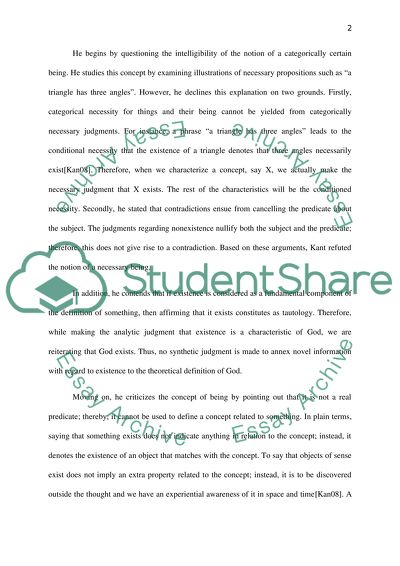Cite this document
(“Ontological Argument criticism by Kant Critique of Pure Reason Essay”, n.d.)
Retrieved from https://studentshare.org/philosophy/1458055-ontological-argument-criticism-by-kant-critique-of
Retrieved from https://studentshare.org/philosophy/1458055-ontological-argument-criticism-by-kant-critique-of
(Ontological Argument Criticism by Kant Critique of Pure Reason Essay)
https://studentshare.org/philosophy/1458055-ontological-argument-criticism-by-kant-critique-of.
https://studentshare.org/philosophy/1458055-ontological-argument-criticism-by-kant-critique-of.
“Ontological Argument Criticism by Kant Critique of Pure Reason Essay”, n.d. https://studentshare.org/philosophy/1458055-ontological-argument-criticism-by-kant-critique-of.


